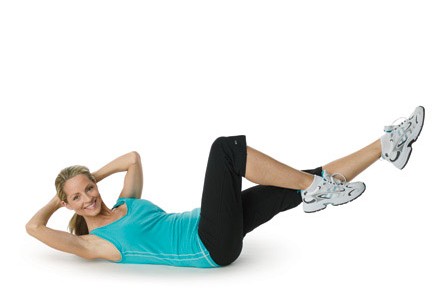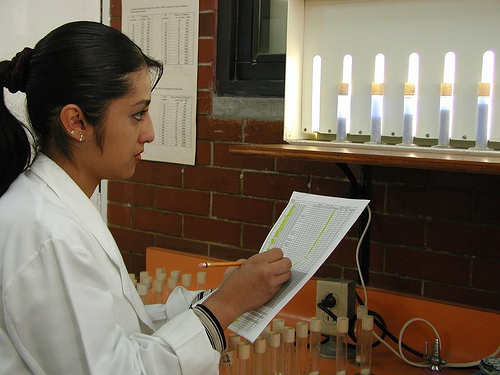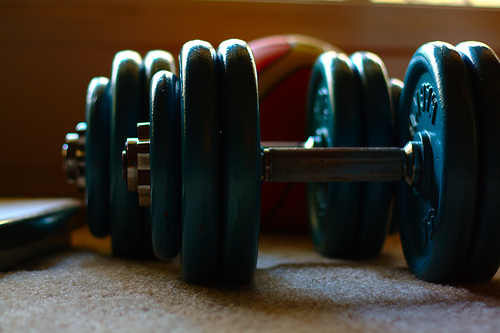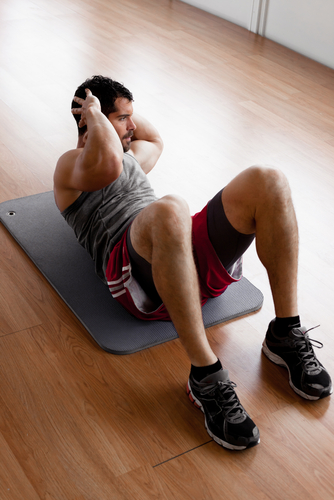
by Steven Madison
Most people want to be healthier and a lot of them even make real changes in their lives to achieve that goal. Millions of Americans belong to gyms – though not everyone actually uses their membership – because they want to get healthy.
Plenty of other Americans change their diets to be healthier, incorporating more fruit and vegetables and fewer fried foods. But a lot of the information we get comes from unreliable sources – a friend from school, a well meaning parent.
That means that there are a lot of misconceptions out there about what is a healthy lifestyle.
According to Eric Harr, professional triathlete and personal coach and the author of The Portable Personal Trainer, “Some myths are just harmless half-truths, but many others can actually be harmful. They can cause frustration in working out and sometimes even lead to injury.”
When it comes to exercise, we all have different needs and our bodies react differently to the same exercises. So what works well for one person will not necessarily work for someone else.
“In this sense you sometimes have to find your own ‘exercise truths’ – the things that are true for you,” says Harr.
Below are some popular health myths that need busting!
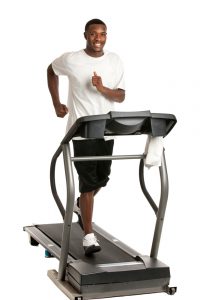 Fitness Myths
Fitness Myths
Fitness Myth Number One: Running on a treadmill is better for your knees than running on pavement or asphalt.
Todd Schlifstein, an instructor at the Rusk Institute at New York University Medical Center says, “Running is a great workout, but it can impact the knees — and since it’s the force of your body weight on your joints that causes the stress, it’s the same whether you’re on a treadmill or on asphalt.”
If you want to avoid stressing your knees then vary the kinds of workouts you are doing. Mix running with other cardio activities like biking or aerobics.
Fitness Myth Number Two: Doing sit-ups on an “ab machine” will zap away your stomach fat.
There are so many infomercials on television selling magical exercise equipment, that it is no real surprise so many people think that an “ab machine” will save them from belly fat.
The body simply doesn’t work like that.
Phil Tyne, the fitness director at the Baylor Tom Landry Health & Wellness Center explains it this way: “You can’t pick and choose areas where you’d like to burn fat.” He continues, “In order to burn fat, you should create a workout that includes both cardiovascular and strength-training elements. This will decrease your overall body fat content,” including the fat in your belly.
Fitness Myth Number Three: Swimming will help you lose weight.
 Swimming is great exercise for upping your lung capacity, for toning your muscles and relieving stress, but the truth is that swimming is not a great exercise for losing weight.
Swimming is great exercise for upping your lung capacity, for toning your muscles and relieving stress, but the truth is that swimming is not a great exercise for losing weight.
“Because the buoyancy of the water is supporting your body, you’re not working as hard as it would if, say, you were moving on your own steam — like you do when you run,” says Harr.
And because a lot of people get very hungry right after going for a swim, they often undo all of their hard work right away.
“It may actually cause you to eat more than you normally would, so it can make it harder to stay with an eating plan,” he adds.
Diet Myths
Diet Myth Number One: There is no need to filter tap water.
A lot of people think that the government does a good enough job regulating what can go into our water supply that you don’t need to worry about what is in your water. But that, unfortunately, is just not true.
Everyone should filter their water. Most water is full of antibiotics, steroids, drugs, synthetic chemicals and pesticides. This is true all over the country, even in a city like New York where people rave about the water quality.
A Brita is inexpensive and can filter out a lot of the junk in your water.
Diet Myth Number Two: You should take nutritional supplements.
If you eat a healthy, well-rounded diet then you should not need to take nutritional supplements as well.
Eat whole foods like organic vegetables and fruits and avoid processed foods, which are really just corn packaged into literally millions of different unhealthy, non-nutritious products.
Start cooking more and incorporate local ingredients, which are also good for the environment as well as good for your health. You will also find that if you are doing your own cooking you will lose weight and save money!
So toss out those expensive supplements and grab the spatula and the apron instead.
Diet Myth Number Three: There’s no reason to buy organic foods.
Many people will try to convince you that you don’t need to buy organic food. But don’t listen to them.
For one, organic meat and dairy products are full of steroids and hormones that may affect your own body chemistry.
Secondly, organic produce is grown without chemicals and so has better nutritional content and fewer toxins. Organic products might cost a bit more, but you are paying for a healthier food and a healthier environment.
(Steven Madison is a writer who specializes in writing about health and wellness topics and enjoys busting popular health and wellness myths. Steven is a writer on Anatomy Now’s site. You can find Steven on Google +.)

